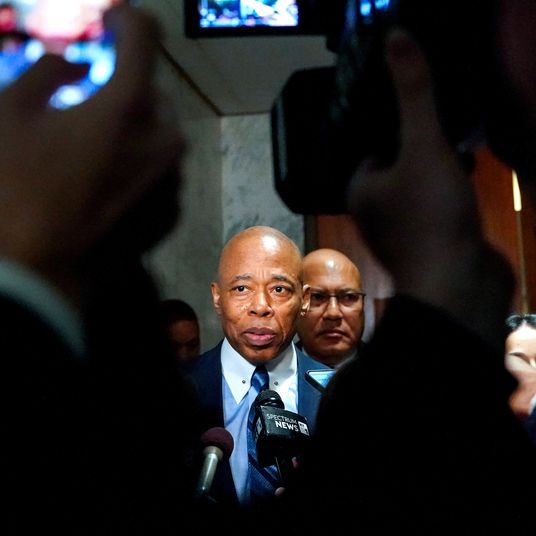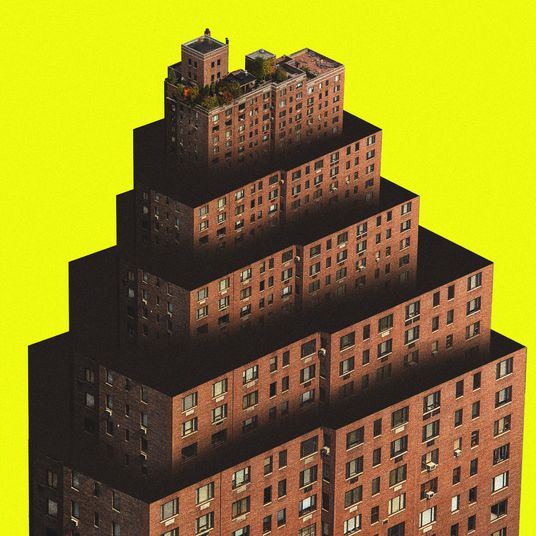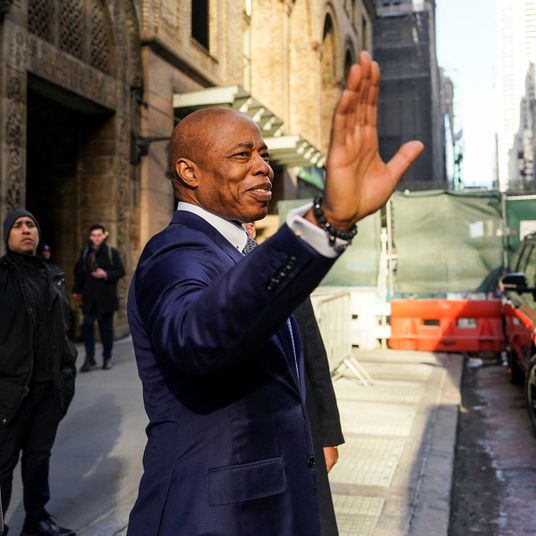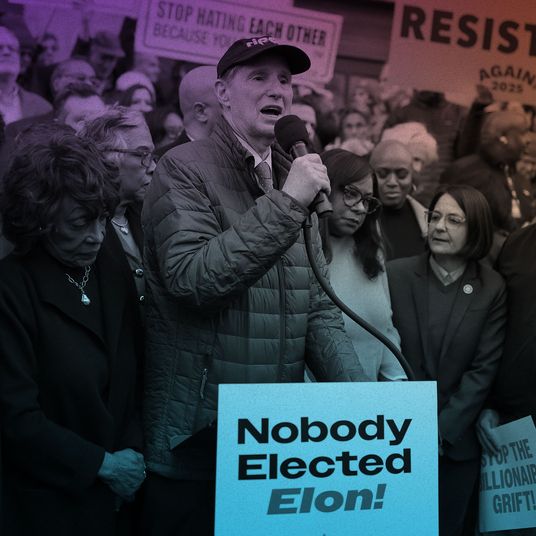The impending Supreme Court vacancy may have just become the talk of the political world, but because of the nearly endless campaign season, Barack Obama has actually been discussing his philosophy about the Supreme Court and how he’d fill a vacancy pretty consistently in town halls, debates, and interviews over the past couple of years. What he’s stressed almost ad nauseum is that he believes the Supreme Court’s responsibility is to protect the minorities, the powerless, and the dissenting voices that are often failed by the political system. In order to achieve that, he’d appoint justices who are not just qualified, but understand the real world and how their decisions affect real people. He’s also voiced concern over the growth of executive power although now that the power is his, we’ll have to see if that remains a top priority. Here’s a look at Obama’s recent statements on the subject.
At a speech to Planned Parenthood in July 2007, Obama said what the Court needs is “somebody who’s got the heart — the empathy — to recognize what it’s like to be a young teenage mom. The empathy to understand what it’s like to be poor or African-American or gay or disabled or old — and that’s the criteria by which I’ll be selecting my judges.”
During a Democratic debate on November 15, 2007, Obama said the Court should “protect people who may be vulnerable in the political process, the outsider, the minority, those who are vulnerable, those who don’t have a lot of clout.” He would look at people “who have life experience, and [who] understand what it means to be on the outside, what it means to have the system not work for them.”
At a town hall in Lafayette, Indiana, on April 10, 2008, Obama said he wanted a “Supreme Court that is sensitive to the fact that their job in part is to look out for those who don’t have power in the political system. I want somebody who believes in civil rights, who believes in civil liberties, who believes in free speech, who believes in making sure that the government works for all powers, who believes in transparency — and that’s actually one of the most important things we need, is a Supreme Court who stops giving the executive branch … carte blanche to do whatever it is that they want, because that’s not the way our democracy is designed.”
At a town hall meeting in Westervile, Ohio, on March 2, 2008, Obama said he believed “we have to have people with the intellectual qualifications and academic credentials to perform. But, that can’t be the only criteria.” Some of the best justices “have been people who know a little bit about how the world works; know what it looks like outside of a court.” And so we need judges “who have enough empathy, enough feeling, for what ordinary people are going through, that they’re not just in a bunch of abstractions up there, but they’re focused on, you know, what does this really mean.” They should “understand that part of the role of the court is to look out for the people who don’t have political power, the people who are on the outside, the people who aren’t represented, the people who don’t have a lot of money, who don’t have connections — that’s the role of the court.” Obama added, “Yes, I want women on the court, absolutely.”
During a candidate forum at Saddleback Church in August 2008, Rick Warren asked Obama which sitting justices Obama wouldn’t have nominated. Obama chose Clarence Thomas because he wasn’t a “strong enough jurist or legal thinker at the time for that elevation,” or Antonin Scalia, “because he and I just disagree.” Obama also faulted John Roberts for giving more power to the Bush administration than intended by the Constitution. “One of the most important jobs of the Supreme Court,” he explained, “is to guard against the encroachment of the executive branch on the power of the other branches.”
In a discussion with the Detroit Free Press in October 2008, Obama said that he was fond of the Warren Court but he’d be “troubled if you had that same kind of activism in circumstances today.” Obama mentioned that he wanted someone in the mold of Justices Souter and Breyer, “somebody who respects the law, doesn’t think that they should be making law … but also has a sense of what’s happening in the real world and recognizes that one of the roles of the courts is to protect people who don’t have a voice.” He continued: “That’s the special role of that institution. The vulnerable, the minority, the outcast, the person with the unpopular idea, the journalist who is shaking things up. That’s inherently the role of the court. And if somebody doesn’t appreciate that role, then I don’t think they are going to make a very good justice.”
During the final presidential debate, on October 15, 2008, Bob Schieffer asked Obama about applying a litmus test on abortion. Obama said “we shouldn’t apply a strict litmus test and the most important thing in any judge is their capacity to provide fairness and justice to the American people.” He said he’d look for “judges who have an outstanding judicial record, who have the intellect, and who hopefully have a sense of what real-world folks are going through.”
In an interview with Brian Williams on October 30, 2008, Obama was asked how he could avoid surprises like Justice Souter without a litmus test. Obama said he could discuss potential justices’ beliefs without asking about specific issues. “And so my criteria, for example, would be if a justice tells me that they only believe in the strict letter of the Constitution, that means that they probably don’t believe in a right to privacy that may not be perfectly enumerated in the Constitution but, you know, that I think is there …. So I can have that conversation with a judge.” He wouldn’t need to get into the “particulars of ‘Is Roe v. Wade as currently outlined exactly what you believe?’ or ‘Do you agree that the D.C. gun law should have been overturned?’”





























